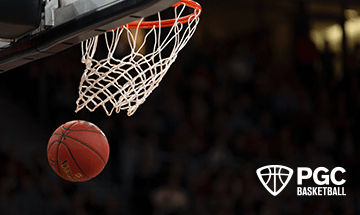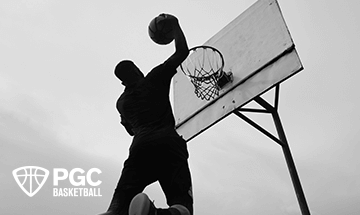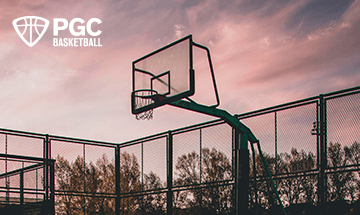How to Get Better at Basketball
Out there alone while the whole world seemed asleep, it was easier to roll through my mind visions of large crowds, TV cameras, and big games where the pressure was on…
There’s something propelling about being up and outdoors, or in a field or on a court—some place away from home—at six in the morning. I used to think of it as “getting ahead” time. At six in the morning the streets in my little town were quiet. Often, it was still dark. But I was out there practicing and it felt good.
It felt good not because I am a morning person. I didn’t like hearing the alarm ring at 5:45 any more than anyone else. But being out there did feel good. Every fake, every maneuver, every effort was infused with the notion that other kids were still sleeping. My competitors, the athletes I would one day face in big games, were sleeping while I was practicing. That was something I couldn’t feel confident about any other time.
Read More: You’ll Never Play in Big Games with Habits Like Those
When you’re practicing after school you have the constant awareness that everyone, all over the nation, is practicing at that same time. Each coach is giving his instructions, urging his team on, offering suggestions, yelling, encouraging, demanding, pushing. After school, anyone could be having a better day, could be working harder, could be learning something that you aren’t.
But at six in the morning? You feel as though almost no one is out there doing that. The nation simply is not filled with kids who get up before school in the morning to practice and improve. I’m not really sure I improved any of my physical skills during all those mornings but I dramatically improved my mental skills.
Working hard at six made me feel deserving of getting ahead of my competition. If I was out there and they weren’t, I ought to become better, right? You may be able to point out reasons this thinking is erroneous but it felt good to be working on my game when most of the world was sleeping. They were getting behind while I was darting and dashing here and there on a dark basketball court.
Three hours later while I sat in English class, the Californians might be dashing and darting on their own basketball courts. They might. But even if they were, they would only be able to equal me. They wouldn’t be able to get ahead. I had already put in my time. And it was inspired time. Get ahead time. Why was it so inspiring? Maybe because my muscles were fresh at that time, or maybe because I knew I couldn’t practice more than an hour before I had to get home to shower and prepare for school. I don’t know. I just remember how animated those practices were. Out there alone while the whole world seemed asleep, it was easier to roll through my mind visions of large crowds, TV cameras, and big games where the pressure was on, and everything depended on one little kid’s unstoppable moves.
Zip.
Run.
Stop on a dime.
Maybe nine cents.
Burst of speed again.
Turn.
Spin.
Lay it up.
Slam it in.
Knock it down.
No. I could never slam dunk. I was too small, couldn’t jump well enough. But those efforts inspired with imagination had an impact on the rest of the day. At school I saw the other kids rubbing their eyes, often complaining about how early it was. Even teachers would talk about the difficulty of getting started first thing in the morning. First thing?
I’d already been up winning titles, championships, trophies, awards. I’d been taking NBA stars to the hole, faking them out of their respective undergarments, and popping in shots that brought crowds to their feet and made future Miss Americas sigh with dreamy admiration. Needless to say, my days had a certain flavor to them, the air of championship performance, as I went from class to class, pushing pencils across papers and waiting…for the future.
—Excerpted from the book, “Think Like a Champion”
Related Articles
How To Win The Inner-Game of Basketball (and Life)
As a basketball player, just like so many other walks of life, players do not operate at max capacity because they are extremely hard on themselves and are losing the ‘inner game.’
What Does It Mean To Be Self-Disciplined?
In the game of basketball, self-discipline is a word that all coaches want players to embody on a daily basis. The word ‘Discipline’ is used for some teams as their standard of excellence, for others it is a pillar that their culture is built upon.
A Champion’s Soul
Muhammad Ali famously said “The fight is won or lost far away from the witnesses, behind the lines, in the gym and out there on the road; long before I dance under these lights.”
About PGC
PGC Basketball provides intense, no-nonsense basketball training for players and coaches. Our basketball camps are designed to teach players of all positions to play smart basketball, be coaches on the court, and be leaders in practices, games and in everyday life.
We combine our unique PGC culture with a variety of teaching methods and learning environments to maximize the learning potential of those that attend our sessions. In addition to spending 6-7 hours on the court each day, lessons will be reinforced through classroom sessions and video analysis.
Our goal at PGC is to empower you with the tools to fulfill your basketball dreams, while also assisting you in experiencing the joy of the journey.
To learn more about PGC Basketball, including additional basketball training tips and videos, visit our YouTube Channel or find us on Facebook, Instagram, and Twitter.













Share This Post